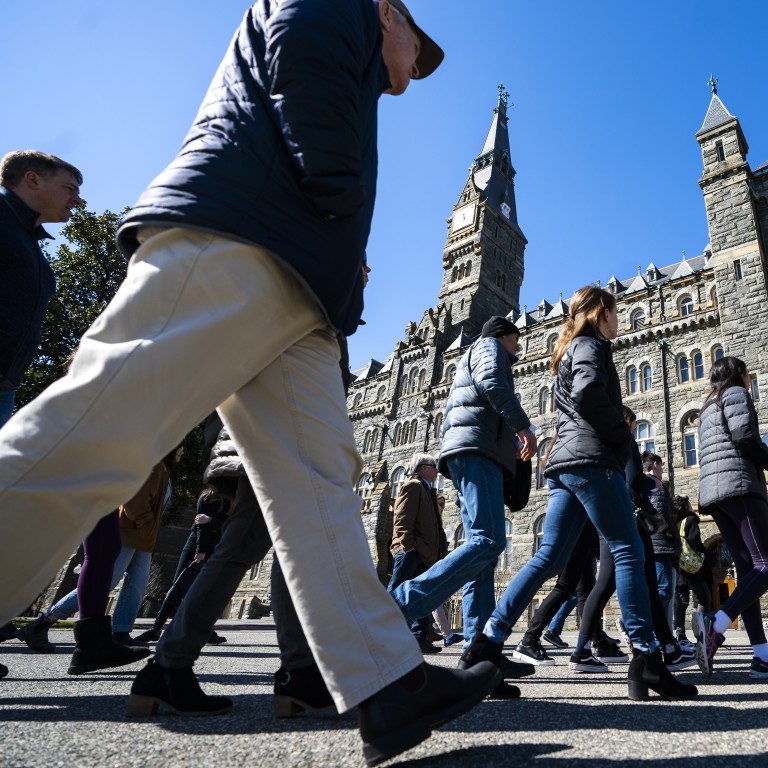
Students and teachers targeted in new Chinese rules to stamp out spying
- Schools will have to hold ‘anti-espionage’ training for those heading abroad, according to provincial legislature
- Observers warn that the approach could backfire on people from China studying in other countries in the future
The rules are part of regulations endorsed by the standing committee of Sichuan’s people’s congress – a legislative body – and cover key government departments, according to Red Star News, an online news outlet under Chengdu Economic Daily.
The regulations come into effect next month, but observers cautioned that implementing the sweeping rules could be backfire.
According to the report, schools will have to conduct “anti-espionage” sessions for teachers and students before and after they go overseas.
Other parts of the regulations deal with issues such as management of classified materials, espionage education for state employees, and police investigations into national security violations.
The regulations also state that anti-espionage activities are a “civic responsibility” and “all citizens” should take part in them to safeguard national security.
Chinese researcher accused of trying to smuggle vials of ‘biological material’ out of US hidden in a sock
Sichuan is at least the third province to introduce such rules – Zhejiang in eastern China and Heilongjiang in the north that have released similar regulations.
Benjamin Ho, a national security and intelligence specialist at the S. Rajaratnam School of International Studies in Singapore, said the raft of regulations would probably have been approved by the country’s leaders but Beijing was cautious not to publicise them on a national level to avoid harm to ties with other countries.
“Most Chinese residents will not be affected by these regulations, except those who work in specific areas that have national security implications,” Ho said.
“The Chinese government certainly has the authority to demand its citizens to [cooperate] but whether it actually does so, given [its] resource limitations and whether its citizens will abide by those requirements is another matter.”
Borge Bakken, a researcher at Australian National University who studies China’s police, said the rules underscored Beijing’s “paranoia” about foreign spies and it could backfire on Chinese students studying abroad in the future.
“The activities arranged and supported by the different liaison offices and the Chinese embassy in Canberra have already become a big problem for Chinese students here, and when these new regulations become known it will lead to increased problems for Chinese students in Australia for sure,” Bakken said.
“Other countries will see the same effect, and these paranoid measures will backfire significantly on China in the future.”
Belgian university closes its Chinese state-funded Confucius Institute after spying claims
China adopted a new national intelligence law in 2017 giving police and security agents broad powers to monitor suspected spies, raid premises and seize properties and devices.
Observers have said that Chinese leaders have wanted to strengthen the country’s national security law to better safeguard against perceived threats from within and outside China.

